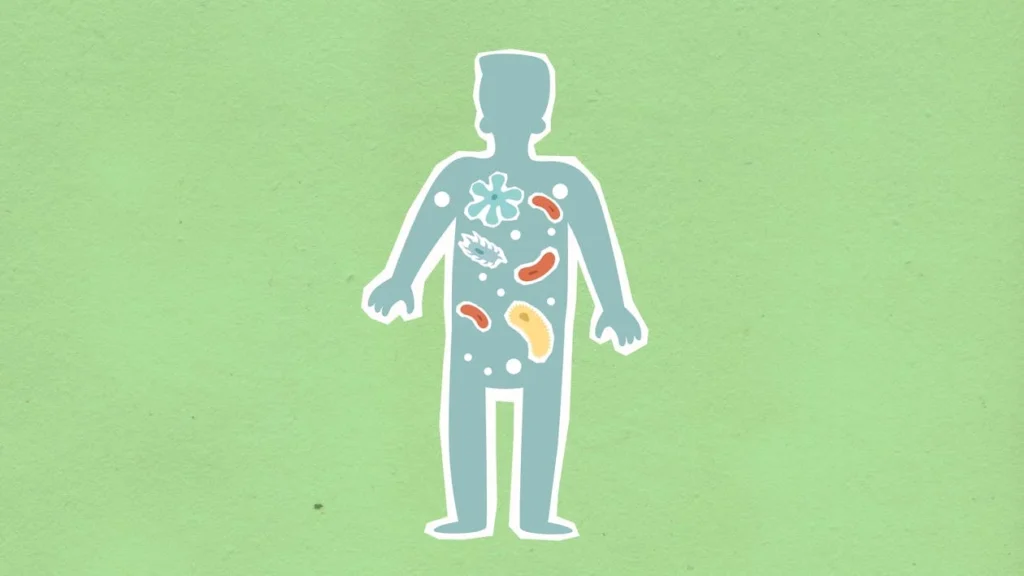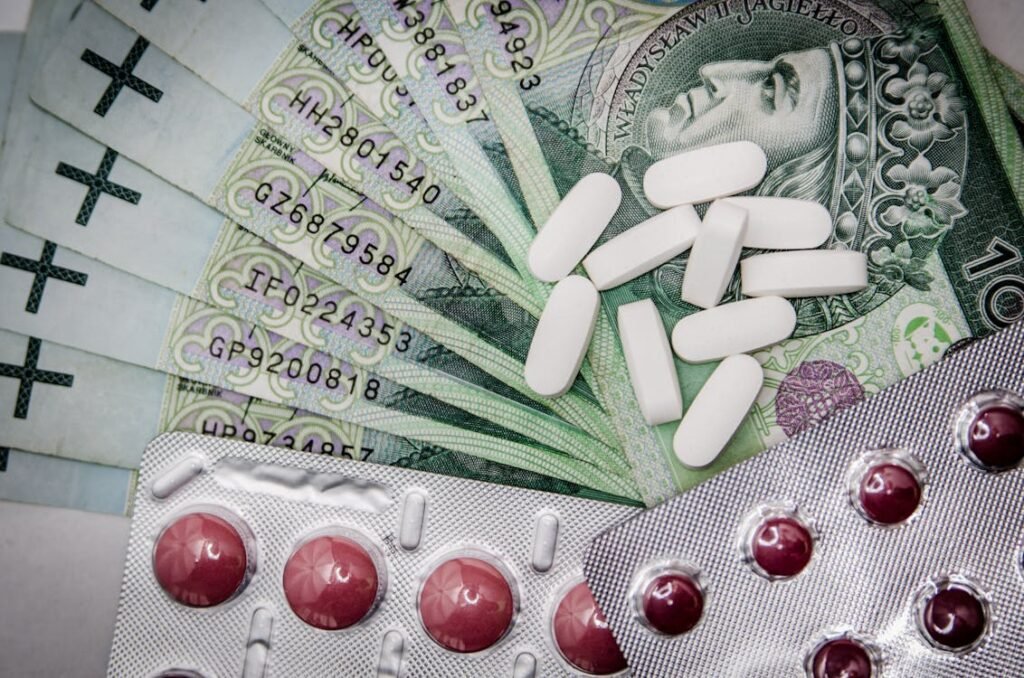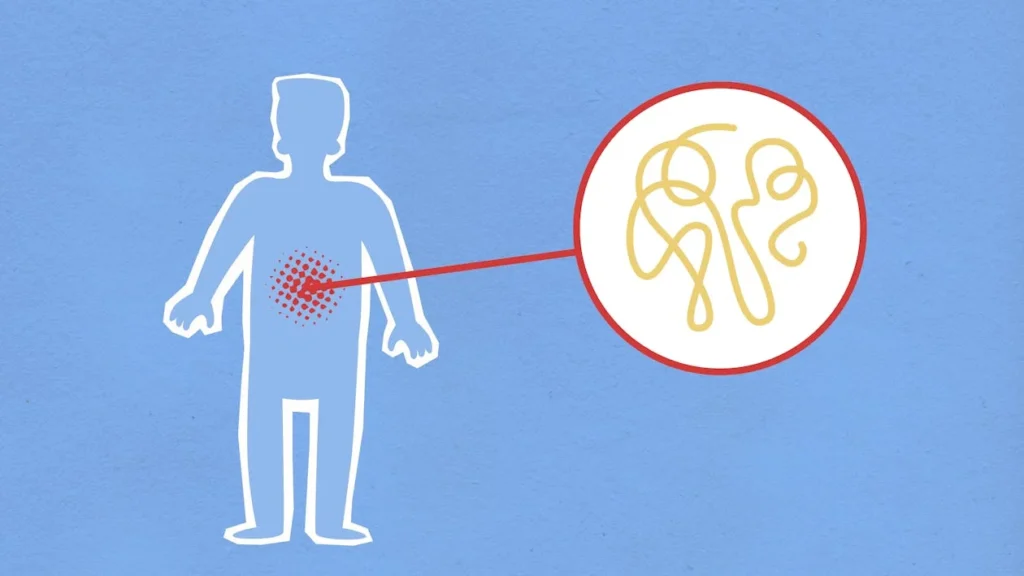When people think about healing after an amputation, they often focus on physical therapy, prosthetic fittings, and pain management. But one crucial factor that is often overlooked is gut health. The gut plays a major role in healing, reducing inflammation, and improving overall well-being. For amputees, managing inflammation is key to preventing pain, speeding up recovery, and improving mobility with prosthetics.
A healthy gut can make a huge difference in how the body heals and how well it fights inflammation. The bacteria in the gut help control the immune system, process nutrients, and even affect mood and energy levels. If the gut is unhealthy, it can lead to chronic inflammation, slow wound healing, and even impact mental health.

Understanding the Connection Between Gut Health and Inflammation
The gut is often called the “second brain” because it does much more than digest food. It is home to trillions of bacteria, fungi, and other microorganisms that help the body function properly.
This collection of microbes, known as the gut microbiome, plays a key role in controlling inflammation.
For amputees, managing inflammation is extremely important because it affects pain levels, wound healing, and overall recovery.
When the gut is balanced with healthy bacteria, it produces substances that reduce inflammation and strengthen the immune system.
These substances help the body repair tissues and fight infections, which is essential after an amputation. However, if the gut is unhealthy, harmful bacteria can grow and cause chronic inflammation.
This type of inflammation does not just affect the gut—it spreads throughout the body, making it harder to heal and increasing discomfort.
How Inflammation Impacts Amputees
Inflammation is the body’s natural response to injury, but when it becomes long-term, it can lead to serious health problems.
For amputees, chronic inflammation can slow down wound healing, increase pain, and even lead to conditions like phantom limb pain. This is because inflammation affects the nerves, muscles, and blood vessels in the body.
A poor diet, stress, infections, and certain medications can all trigger inflammation. Many processed foods, artificial sugars, and unhealthy fats can disturb the gut microbiome, allowing harmful bacteria to take over.
When this happens, the body struggles to control inflammation, leading to swelling, discomfort, and slower recovery times.
At the same time, a weak gut can make it harder to absorb essential nutrients from food.
Vitamins and minerals like vitamin C, vitamin D, and zinc are crucial for tissue repair, but if the gut is unhealthy, these nutrients may not be properly absorbed.
This can lead to fatigue, a weakened immune system, and a higher risk of infections, which are major concerns for amputees who need to stay healthy for proper prosthetic use.
The Gut-Brain Connection and Its Impact on Recovery
The gut and brain are deeply connected through a network of nerves and chemicals. This means that gut health can directly affect mood, energy levels, and pain perception.
Many amputees experience emotional challenges, including anxiety and depression, as they adjust to life after limb loss.
If the gut is unhealthy, it can worsen these feelings by disrupting the balance of brain chemicals like serotonin, which affects mood and mental health.
A balanced gut can help regulate stress hormones, improve sleep, and even enhance pain tolerance.
When the gut is in good shape, the body produces anti-inflammatory compounds that not only support physical healing but also contribute to emotional well-being.
This can make a big difference in how an amputee feels, both physically and mentally, throughout their recovery journey.

How Diet Affects Gut Health and Inflammation
What we eat has a direct impact on the gut microbiome, and for amputees, a healthy diet can be a powerful tool in managing inflammation and speeding up healing. The foods we consume either support the growth of beneficial bacteria or encourage harmful microbes to thrive.
When the gut is nourished with the right foods, it helps regulate the immune system, control inflammation, and improve digestion. But when the diet is filled with processed foods, artificial additives, and unhealthy fats, the gut microbiome becomes unbalanced, leading to chronic inflammation and slower recovery.
Eating whole, nutrient-rich foods is one of the best ways to maintain a healthy gut. Fiber plays an important role in feeding beneficial bacteria, which then produce compounds that reduce inflammation.
Fruits, vegetables, and whole grains provide the necessary fiber to keep gut bacteria balanced and the digestive system running smoothly.
Fermented foods like yogurt, kefir, and sauerkraut contain probiotics, which are live bacteria that help restore gut health. These foods can strengthen the gut lining, making it harder for harmful substances to enter the bloodstream and cause inflammation.
On the other hand, highly processed foods, sugary snacks, and deep-fried meals can damage the gut and trigger an inflammatory response. Excess sugar feeds harmful bacteria, allowing them to multiply and take over the gut.
This imbalance weakens the immune system, making it harder for the body to heal wounds and fight infections. Artificial additives, preservatives, and unhealthy oils often found in packaged foods can further irritate the gut, leading to bloating, discomfort, and long-term health issues.
The Role of Hydration in Gut and Overall Health
Drinking enough water is just as important as eating the right foods when it comes to gut health. Water helps move nutrients through the digestive system, allowing the body to absorb them more effectively.
It also helps flush out toxins and waste products that can contribute to inflammation. Without proper hydration, digestion slows down, which can lead to constipation and an accumulation of harmful substances in the gut.
For amputees, staying hydrated is particularly important because dehydration can worsen inflammation and increase muscle cramps. If the body does not receive enough water, circulation can be affected, making it harder for oxygen and nutrients to reach healing tissues.
This can slow down the recovery process and make it more difficult for the body to adjust to a prosthetic limb.
The Importance of Healthy Fats in Fighting Inflammation
Not all fats are bad for the body. In fact, certain fats can help reduce inflammation and support overall healing. Omega-3 fatty acids, found in foods like salmon, walnuts, and flaxseeds, are known for their powerful anti-inflammatory properties.
These healthy fats help strengthen cell membranes, making them more resistant to damage and reducing swelling in the body. They also play a role in brain health, which can be beneficial for amputees dealing with emotional challenges.
In contrast, trans fats and excessive saturated fats, often found in fast food and processed snacks, can increase inflammation. These fats interfere with the body’s natural healing processes and contribute to weight gain, which can put additional strain on joints and muscles.
Maintaining a diet rich in healthy fats while avoiding unhealthy ones can make a significant difference in reducing inflammation and improving overall well-being.

The Impact of Stress and Sleep on Gut Health and Inflammation
Managing stress and getting quality sleep are just as important as diet when it comes to maintaining gut health and controlling inflammation. For amputees, the emotional and physical adjustments after limb loss can be overwhelming, leading to increased stress levels.
When the body is under stress, it releases a hormone called cortisol, which, in high amounts, can damage the gut lining and lead to an imbalance in gut bacteria. This imbalance can trigger inflammation, weaken the immune system, and make recovery more difficult.
Chronic stress can also affect digestion by slowing it down or speeding it up, leading to issues such as bloating, constipation, or diarrhea. It can make it harder for the body to absorb nutrients properly, which is crucial for wound healing and overall health.
Learning to manage stress through relaxation techniques, deep breathing, or mindfulness can help protect gut health and reduce inflammation. Activities such as meditation, yoga, and even simple breathing exercises can calm the nervous system and improve digestion.
Sleep plays a major role in gut health as well. During sleep, the body works to repair damaged tissues, regulate hormones, and restore the gut microbiome. Poor sleep or an irregular sleep schedule can disrupt this process, leading to increased inflammation and a weakened immune system.
Amputees who struggle with pain or discomfort at night may find it challenging to get deep, restorative sleep. Creating a relaxing bedtime routine, reducing screen time before bed, and keeping a consistent sleep schedule can help improve sleep quality.
How Movement and Exercise Support Gut Health
Physical activity is another important factor in maintaining a healthy gut and controlling inflammation. Regular movement helps stimulate digestion, reduce stress, and improve circulation, all of which support gut function.
Exercise encourages the growth of beneficial bacteria in the gut, which can strengthen the immune system and help the body recover faster from injuries or surgeries.
For amputees, staying active can sometimes be challenging, especially during the early stages of rehabilitation. However, even light movement, such as stretching or short walks, can have positive effects on gut health.
Adaptive exercises designed for amputees can help strengthen the core and improve blood flow, which supports digestion and reduces inflammation. Over time, incorporating strength training and cardiovascular activities can further enhance gut health and overall physical well-being.
It is important to listen to the body and move in a way that feels comfortable. Pushing too hard can increase stress and inflammation, while gentle, consistent movement can support both gut and overall health.
Working with a physical therapist or rehabilitation specialist can help amputees find the right type of exercise that suits their needs and abilities.
The Role of Probiotics and Supplements in Gut Health
In addition to diet and lifestyle changes, probiotics and certain supplements can help improve gut health and reduce inflammation. Probiotics are live bacteria that help restore balance in the gut microbiome.
They can be found in fermented foods like yogurt, kimchi, and miso or taken as a supplement. For amputees dealing with digestive issues or chronic inflammation, probiotics may help improve gut function and boost the immune system.
Prebiotics, which are fibers that feed beneficial gut bacteria, can also support gut health. Foods like garlic, onions, bananas, and asparagus are rich in prebiotics and help beneficial bacteria grow.
Taking both probiotics and prebiotics can create a strong foundation for a healthy gut, leading to better digestion and reduced inflammation.
Certain vitamins and minerals, such as vitamin D, zinc, and magnesium, play a role in immune function and tissue repair. If an amputee is not getting enough of these nutrients through diet, supplements may be helpful.
However, it is always best to consult with a healthcare provider before starting any new supplement regimen.

Healing from the Inside Out: How a Healthy Gut Supports Amputee Recovery
Gut health is not just about digestion—it influences nearly every system in the body. For amputees, a well-functioning gut can be the difference between a smooth recovery and ongoing inflammation-related struggles.
The body’s ability to repair tissue, manage pain, and even regulate mood is closely tied to the gut microbiome. When the gut is in good shape, it produces anti-inflammatory compounds, supports immune function, and helps with the absorption of essential nutrients.
These benefits contribute to better energy levels, faster wound healing, and overall improved quality of life.
An imbalanced gut, on the other hand, can make recovery more difficult. Harmful bacteria produce toxins that trigger inflammation throughout the body, leading to prolonged pain and discomfort. This can make it harder to adjust to a prosthetic limb and may even contribute to conditions such as phantom limb pain.
If the gut lining becomes damaged—a condition known as “leaky gut“—toxins and undigested food particles can enter the bloodstream, creating an immune response that worsens inflammation. Over time, this can weaken the body’s ability to fight off infections and recover properly.
The Psychological Benefits of a Healthy Gut
Mental health plays a significant role in how amputees adapt to life after limb loss. The gut and brain are directly connected, and an unhealthy gut can contribute to anxiety, depression, and mood swings.
Many neurotransmitters, including serotonin—the “feel-good” chemical—are produced in the gut. When gut bacteria are balanced, serotonin production improves, leading to a more stable mood and better emotional well-being.
For amputees facing the emotional challenges of limb loss, maintaining gut health can provide a sense of stability. It can improve mental clarity, reduce feelings of fatigue, and enhance overall mood.
Feeling physically better also has a direct impact on emotional resilience, making it easier to stay motivated during rehabilitation and prosthetic training.
Steps to Rebuild Gut Health for Long-Term Benefits
Healing the gut is a gradual process, but small changes can lead to significant improvements over time. Focusing on whole, unprocessed foods helps restore balance to the gut microbiome, while reducing sugar and processed foods prevents harmful bacteria from thriving.
Staying hydrated, managing stress, and getting enough sleep all contribute to a healthier gut environment.
Introducing probiotic-rich foods or supplements can help rebuild beneficial gut bacteria, while fiber-rich foods support digestion and regular bowel movements.
Movement and exercise, even in small amounts, can stimulate digestion and keep the gut functioning optimally. Over time, these changes can reduce inflammation, improve energy levels, and support overall recovery.
For amputees, gut health is more than just a wellness trend—it is a key component of healing, pain management, and long-term health. By taking care of the gut, it is possible to enhance both physical and emotional well-being, leading to a smoother and more comfortable recovery journey.

Embracing a Holistic Approach to Recovery
For amputees, recovery is not just about adjusting to a prosthetic limb—it is about achieving overall well-being. A holistic approach that includes gut health can make a tremendous difference in the healing process.
By nourishing the gut, managing inflammation, and supporting mental health, amputees can enhance their ability to recover faster, reduce pain, and improve their overall quality of life.
Gut health is deeply connected to how the immune system functions, how wounds heal, and how energy levels are maintained throughout the day. It also plays a role in reducing complications that often arise after amputation, such as infections, slow healing, and chronic pain.
When the gut microbiome is balanced, the body is better equipped to fight off harmful bacteria and maintain a strong immune response. This not only helps in the initial stages of healing but also ensures long-term health and mobility.
The journey to better gut health is not about quick fixes or extreme diets. It is about making consistent, sustainable changes that support the body’s natural healing processes. Eating nutrient-dense foods, staying hydrated, prioritizing sleep, managing stress, and staying active all contribute to a healthier gut.
These changes work together to create an environment where inflammation is kept under control, allowing the body to focus on healing and adapting to new challenges.
Personalized Gut Health Strategies for Amputees
Every amputee’s experience is unique, and the approach to gut health should be tailored to individual needs. Some people may have sensitivities to certain foods, while others may need additional nutritional support.
Working with a healthcare professional, nutritionist, or rehabilitation specialist can help create a personalized plan that supports gut health and overall recovery.
Paying attention to how the body responds to different foods, tracking energy levels, and making gradual adjustments can lead to long-term success.
Small changes, such as incorporating more fiber, adding probiotic-rich foods, and reducing processed foods, can yield noticeable improvements in digestion, inflammation levels, and overall well-being.

The Influence of Medications on Gut Health and Inflammation
Many amputees rely on medications to manage pain, prevent infections, and control other health conditions that may arise after limb loss. While these medications are often necessary, they can have unintended effects on gut health.
Understanding how different medications impact the gut microbiome can help amputees take proactive steps to protect their digestive health while still benefiting from necessary treatments.
How Pain Medications Affect the Gut
Pain management is a crucial part of recovery after an amputation, but common pain medications can disrupt gut function in several ways.
Nonsteroidal anti-inflammatory drugs (NSAIDs) such as ibuprofen and aspirin are frequently used to reduce pain and inflammation.
However, long-term or frequent use of NSAIDs can irritate the gut lining, potentially leading to ulcers, acid reflux, or a condition known as “leaky gut,” where harmful substances pass through the intestinal barrier and enter the bloodstream, triggering widespread inflammation.
Opioid medications, which are sometimes prescribed for severe pain, can also negatively affect gut health. These drugs slow down the digestive system, often leading to constipation and bloating.
Opioids can also alter the balance of gut bacteria, weakening the body’s ability to fight infections and process nutrients efficiently.
For amputees who need to rely on these medications, maintaining a diet rich in fiber and staying hydrated can help counteract some of these effects.
The Role of Antibiotics in Gut Health
Antibiotics are often prescribed after surgery to prevent infections, but they can have a significant impact on the gut microbiome. While antibiotics are effective at killing harmful bacteria, they also eliminate beneficial bacteria that support digestion, immune function, and inflammation control.
This imbalance can lead to digestive issues such as diarrhea, bloating, and increased susceptibility to infections like gut-related bacterial overgrowth.
After a course of antibiotics, it is essential to restore gut health by consuming probiotic-rich foods or taking high-quality probiotic supplements.
Fermented foods such as yogurt, kefir, and kimchi can help replenish beneficial bacteria, reducing the risk of digestive disturbances and inflammation. Prebiotic foods, like garlic, onions, and bananas, can also support the regrowth of healthy gut microbes.
Managing the Effects of Other Medications
Certain medications used to treat chronic conditions, such as diabetes or high blood pressure, can also influence gut health. Some diabetes medications may cause digestive discomfort, while proton pump inhibitors (PPIs), which are used to manage acid reflux, can alter the stomach’s acidity and affect nutrient absorption.
Amputees who take multiple medications should work closely with their healthcare providers to find the best balance between managing their symptoms and maintaining a healthy gut.
In some cases, adjusting dosages, switching to alternative medications, or incorporating dietary strategies can help minimize negative effects on digestion and inflammation.
Supporting Gut Health While Taking Medications
While medications are often necessary, amputees can take steps to protect their gut health. Eating a nutrient-rich diet, staying hydrated, and consuming fiber can help counteract the effects of medication-related gut imbalances.
Engaging in regular movement, even if it’s light activity, can support digestion and prevent sluggish gut function. Managing stress and getting quality sleep also play a role in maintaining a healthy gut microbiome.
By being mindful of how medications impact gut health, amputees can make informed choices that support both their recovery and long-term well-being. A combination of medical care, lifestyle adjustments, and dietary support can create the best conditions for healing while reducing unwanted side effects.
Conclusion
The role of gut health in healing and managing inflammation for amputees cannot be overstated. It is a key component of physical recovery, pain management, and emotional resilience. A healthy gut strengthens the immune system, improves wound healing, and helps the body adapt to life after limb loss. It also supports mental health, helping amputees navigate the emotional aspects of their journey with greater ease.
By making gut health a priority, amputees can take a proactive approach to their recovery. Simple yet powerful lifestyle changes can lead to a stronger body, reduced inflammation, and a more comfortable experience with prosthetics. The goal is not just to heal but to thrive, and a healthy gut lays the foundation for long-term health and mobility.



